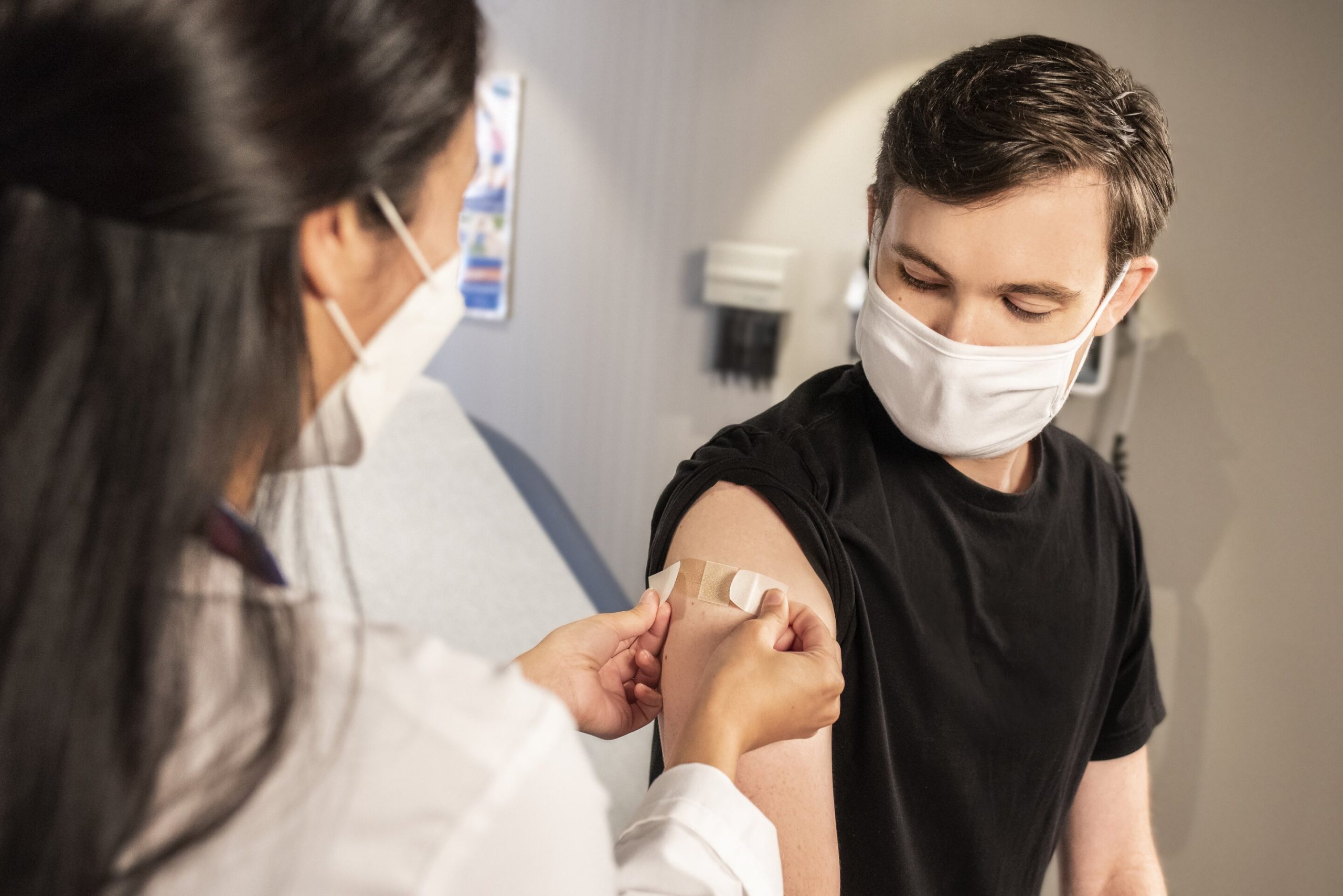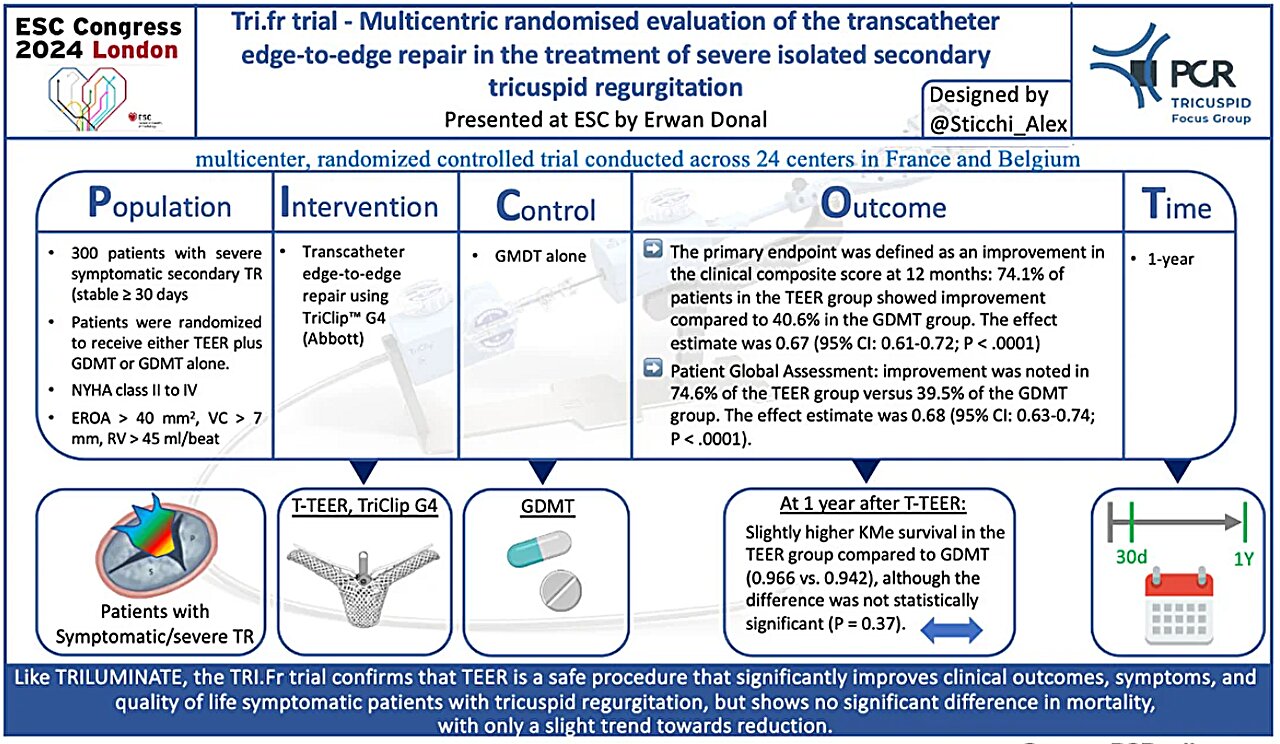
People who have been fully vaccinated against COVID-19 have a significantly lower risk of developing more severe cardiovascular conditions linked to COVID-19 infection, according to a nationwide study at the University of Gothenburg. At the same time, some cardiovascular effects are seen after individual doses of the vaccine.
The COVID-19 vaccine aims to reduce complications and overall mortality from the disease. A rare acute side effect is inflammation of the cardiac muscle or the pericardium in young men following mRNA vaccination. In terms of other cardiovascular effects, there has only been limited research and the results have been conflicting.
Published in the European Heart Journal, a register-based, nationwide study is based on data from the entire population of more than eight million adults in Sweden who were followed up in national health care registers for around two years, from the end of December 2020, when COVID-19 vaccination began, until the end of 2022.
The researchers have studied ‘risk windows’ (the time immediately after a single injection of the COVID vaccine), dose by dose, in those who were vaccinated. The cardiovascular health after full vaccination has then been compared with the cardiovascular health of those who, at the same stage of the study, had not started any vaccination.
Risk analyses for cardiovascular disease
The study includes risk analyses for a number of cardiovascular diseases related to both the heart and the brain: inflammation of the cardiac muscle or the pericardium, cardiac arrhythmia, heart failure, TIA, and stroke—the latter two being caused by impaired blood flow in the brain.
For most of the outcomes—particularly the more serious ones—there was a reduced risk of cardiovascular events after vaccination, especially after the third dose. The risk of cardiovascular events after being fully vaccinated was generally 20–30% lower than if no vaccination had been initiated.
At the same time, the study also confirms the increased risk of inflammation of the cardiac muscle or the pericardium one to two weeks after a single mRNA injection against COVID.
The study also observed a temporarily increased risk of extrasystoles—additional heartbeats—after dose one (17% higher risk) and dose two (22% higher risk), and this was stronger among elderly and males. There was no increased risk of other serious cardiac arrhythmias after being vaccinated.
The risk of stroke was lower after vaccination than without vaccination, while the risk of TIA was temporarily higher (13% higher risk) after a single dose of vaccination, mainly in older men.
Protective benefits of the vaccine
The research was carried out at the School of Public Health and Community Medicine at the University of Gothenburg’s Sahlgrenska Academy, with Fredrik Nyberg, a Visiting Professor in Register Epidemiology, and Yiyi Xu, an Associate Professor in Occupational and Environmental Medicine, having main responsibility for the study.
Other authors include Mats Börjesson, a cardiologist and Professor of Sports Physiology, and Magnus Gisslén, an infection specialist, Professor of Infectious Diseases, and State Epidemiologist.
“The increases in cardiovascular risk we saw following COVID-19 vaccination are temporary, and do not apply to the more severe conditions,” says Professor Nyberg.
“On the other hand, full vaccination significantly reduced the risk of several more severe cardiovascular outcomes linked to COVID-19, such as heart attack, stroke, and heart failure. This emphasizes the protective benefits of full vaccination.”
More information:
Yiyi Xu et al, Cardiovascular events following coronavirus disease 2019 vaccination in adults: a nationwide Swedish study, European Heart Journal (2024). DOI: 10.1093/eurheartj/ehae639
Citation:
Study finds a reduced risk of serious cardiovascular disease after COVID vaccination (2024, October 1)
retrieved 6 October 2024
from https://medicalxpress.com/news/2024-10-cardiovascular-disease-covid-vaccination.html
This document is subject to copyright. Apart from any fair dealing for the purpose of private study or research, no
part may be reproduced without the written permission. The content is provided for information purposes only.


